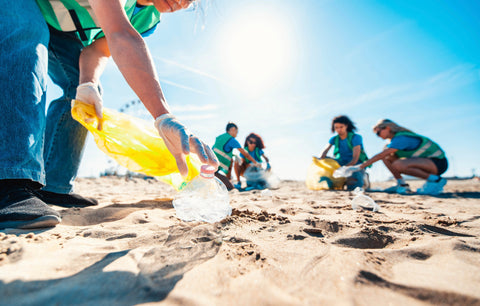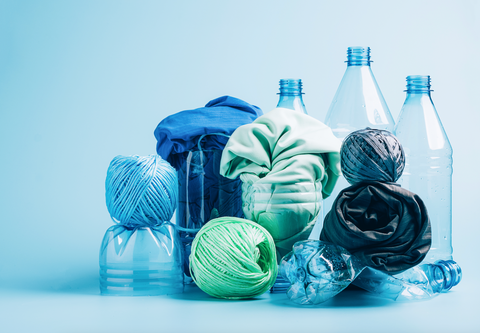In the first and second parts of our series on the wonders of our oceans, and impacts of plastic pollution, we covered some of the devastating impacts of ocean plastic on marine life, the environment, and our health.
This often leads to the question... well what can just one person do to help out?
While plastic production shows no sign of slowing down (in fact, it's projected to increase over the next several years), awareness of the issue is growing. We’ve all seen pictures of turtles with plastic straws in their noses or heard about countries like Canada banning single-use plastic products. These initiatives have been launched in recent years to bring to light the issues associated with ocean plastics and offer opportunities for companies and individuals to become involved in several ways.

The first is the most obvious and takes perhaps the least effort: Be the change! This means reducing your own plastic ‘footprint’ by avoiding single-use plastic products like bags, bottles, wrappers, straws, etc. For each single-use plastic, there are plenty of alternatives that are reusable and sustainable (such as metal straws) and, in the long run, potentially more cost-effective. Of course, some plastic products are challenging to avoid, and in those cases, we urge proper and responsible recycling practices.
There are also a number of NGOs, non-profit organizations, and other charitable groups that have risen to answer the call and arrange for ocean plastic recovery campaigns globally. Groups like 4Ocean and Ocean Legacy Foundation have been active in recovering plastic from the coasts.

For those willing to get their hands dirty, several of these organizations offer opportunities to volunteer in cleanup missions. For a comprehensive list of programs, you can visit sites like Volunteer World.
Alternatively, some organizations, like Sea Save Foundation allow you to volunteer your skills to help with their operations remotely.
Many groups, like Ocean Conservancy, are active in lobbying for governments to implement stricter policies around the production and use of single-use plastics and urging politicians to consider sustainable alternatives.
And, of course, in each case, there is always the option to donate (donations qualify as a tax write-off!).
Many companies have begun to develop products from recycled plastic material, rather than producing from net-new virgin plastics.

There has also recently been a rise in companies designing products that utilize specifically ocean plastics. Patagonia, for instance, uses recycled polyester for some of its apparel. Other manufacturing giants have formed partnerships to develop products from recycled ocean plastic material - such as running shoes with Adidas x Parley. Smaller companies have developed products such as sunglasses, bags, buttons, and even face masks or sustainable cannabis packaging!
Of course, let's not forget about ReCast Fishing, where we develop fishing lures made from 100% recycled ocean plastics. Each lure purchased not only helps to directly contribute to the recycling of ocean plastics but also supports us in our mission to grow our team and realize our ambitions to run our awareness campaigns, help organize and contribute to ocean plastic recovery programs, and ultimately become a driving force in addressing the issue of ocean plastic waste.Have any tips you'd like to share for reducing your plastic footprint? Drop them in the comments below!

